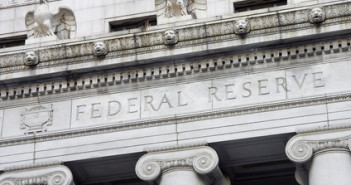The Federal Reserve made one change in policy: extend the commitment for low rates until “late 2014â€, or practically forever.
The dollar is falling.
In the statement, there are absolutely no signs of any upcoming round of quantitative easing. The regular wording regarding occasionally reviewing policy remain.
There are many good signs in the US economy, such as the drop in unemployment, and the Fed doesn’t ignore this. Yet the concept of an American reverse decoupling is not noted. the members continued discussing the global headwinds and the ongoing stress in the housing market. Here’s the first paragraph that sums it all:
Information received since the Federal Open Market Committee met in December suggests that the economy has been expanding moderately, notwithstanding some slowing in global growth. While indicators point to some further improvement in overall labor market conditions, the unemployment rate remains elevated. Household spending has continued to advance, but growth in business fixed investment has slowed, and the housing sector remains depressed. Inflation has been subdued in recent months, and longer-term inflation expectations have remained stable.
The worries about the housing sector are not new, and cannot be interpreted as a pledge to run a third round of quantitative easing that will target mortgage based assets.
Yet Bernanke could still provide subtle hints of such a possibility in his press conference, especially if pushed by reporters.
Nevertheless, the previous text about keeping rates low until at least mid 2013 was now pushed back about a year and a half forward. The clause was first introduced in the August meeting.
EUR/USD leaped from the 1.2945 – 1.30 range to the 1.30 to 1.3060 range. With no prospects of rate hikes, the dollar is inferior to other currencies.
The euro was struggling beforehand, as Greece got closer to default once again.
It’s important to note that also in the new composition of voting members in the Federal Reserve, there was still one hawkish dissenter who didn’t want the commitment to appear at all:
Voting against the action was Jeffrey M. Lacker, who preferred to omit the description of the time period over which economic conditions are likely to warrant exceptionally low levels of the federal funds rate.
It looks like the dovish composition of the Fed didn’t materially change anything. The doves get “headwinds†from the robust economy.
The individual forecasts of each member will be published at 19:00 GMT, with Ben Bernanke’s press conference commencing at 19:15.



